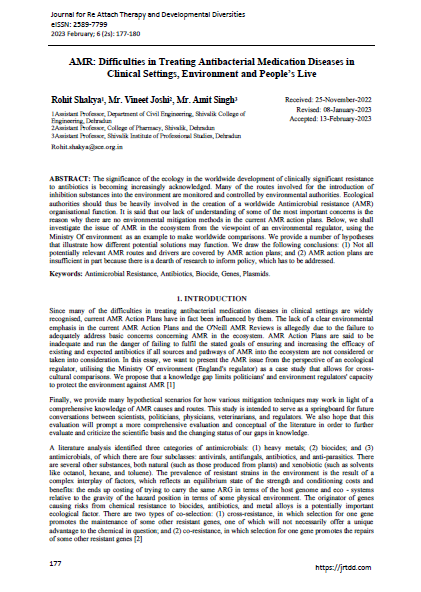AMR: Difficulties in Treating Antibacterial Medication Diseases in Clinical Settings, Environment and People’s Live
Main Article Content
Abstract
The significance of the ecology in the worldwide development of clinically significant resistance to antibiotics is becoming increasingly acknowledged. Many of the routes involved for the introduction of inhibition substances into the environment are monitored and controlled by environmental authorities. Ecological authorities should thus be heavily involved in the creation of a worldwide Antimicrobial resistance (AMR) organisational function. It is said that our lack of understanding of some of the most important concerns is the reason why there are no environmental mitigation methods in the current AMR action plans. Below, we shall investigate the issue of AMR in the ecosystem from the viewpoint of an environmental regulator, using the Ministry Of environment as an example to make worldwide comparisons. We provide a number of hypotheses that illustrate how different potential solutions may function. We draw the following conclusions: (1) Not all potentially relevant AMR routes and drivers are covered by AMR action plans; and (2) AMR action plans are insufficient in part because there is a dearth of research to inform policy, which has to be addressed.

